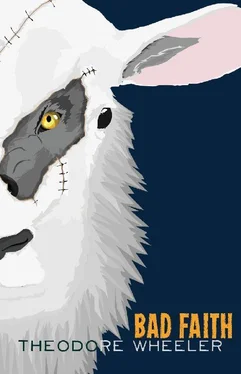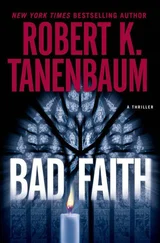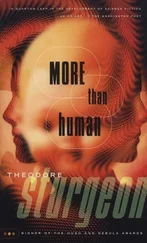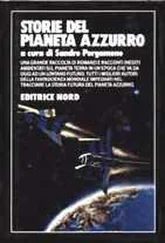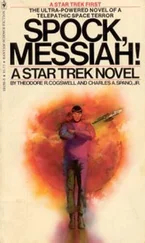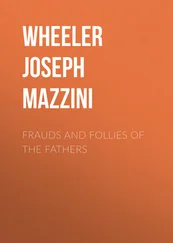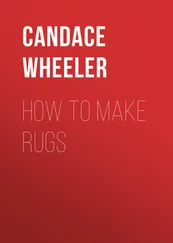He came back the next night to ask her out to the burger and gyro place down the road.
She lived in a small white house not far from the filling station. It had been her parents’ house, the place she grew up in. All the old furnishings were still there, worn sofas, porcelain knickknacks on the wall. There were small wooden cups Lorna’s father made in his basement workshop when he was alive. Lorna’s eyes pinched nearly closed when she smiled. It was a nice smile, one that made Aaron think she’d been very pretty in high school.
Aaron liked talking to Lorna about her life. She got nostalgic and teary, muttered “son of a bitch” through dry nicotine lips.
She told him how most of her life was documented in the public record, in court cases and various judgments levied against her, in smarmy newspaper articles. There was a string of charges that ended with a conviction for transporting a minor across state lines — a fifteen-year-old boy listed in the record as N.S. And that’s what she called the boy too, when she told Aaron about him, even though N.S. would be close to thirty by then, a man off living somewhere, with a family to take care of, more than likely. “I was pregnant by him when they picked us up,” Lorna admitted. “But I don’t have children of my own.”
1
I found my mom fidgeting with her uniform in front of the bedroom mirror. The sand-dappled camo tee shirt that bit her armpits it was so tight. The black mascara, the no lipstick. Her hair coiled in a bun to fit under the squarish khaki hat. Her rucksack tied up tight and made to balance next to the closet door. It was early. She noticed me standing in the doorway and kept dressing. She stared into her eyes in the mirror and must have wondered what we were all wondering about, what the next year would bring. She sat to pull her boots on and started with the laces. “Go eat breakfast,” she told me, “if you have to be up so early.”
Downstairs my father was frying eggs. “What’s the deal, Oscar?” he asked. I shook my head, turned away from him. I worried the waistband of my pajamas above my bellybutton. He picked me up and sat me on the counter. “It’s just us now,” he said. “Are we going to be okay?”
Later, I put on my brown suit, the new one from Sears. I’d thrown a fit in the store when my father suggested that some slacks with suspenders would be good enough for the party. I didn’t want slacks with suspenders. I wanted to be as perfect as my mom was. I wanted to look neat and sleek and formal. I wanted a uniform.
2
The relatives drove in from different places. They’d left early in the morning, some of them the afternoon before, and were made lazy by their travels. They leaned on porch railings and sat sighing on the front steps. The smell of them as they lined up for photographs with my mom under the big oak tree in the yard. The Chicago cousins, all girls, announced themselves with sugary perfumes, like a magazine in the mailbox, and the flurry of teasing that burst out in their cutting city manners. Their hair was done up in curls if older, brushed down straight if nearer my age. And the billows of cigarette smoke, the hiked-up Wranglers of my uncles who stood away from the commotion to mumble gossip. I was eight years old and couldn’t really talk to any of these men. They were what remained of my father’s family, all of them bachelors or divorced, journeymen machinery workers in Des Moines. They poked boot tips at the roots of milkweed and tried to remember where the barn used to be, the gate to the hogs, the chicken hutch, the corrugated steel quonset where machinery had been held when this was still a family farm, the farm they grew up on, before all but what the house sat on was sold. They pointed to the oak tree where my Chicago cousins played on their cell phones, and debated about which ancestor it was who planted that tree, a red oak, no, a white oak, back when this land was settled.
There was vanilla ice cream with fresh strawberries after the bratwurst and burgers. There were sopapillas.
Grandpa Amos brought me a goldfish in a bowl. The fish was orange but shined when it spun in its water. After lunch I took the fish to my bedroom and refused to come downstairs.
“Come see your mother,” Grandpa Amos said. He pounded a hand against the stairwell to make the walls thunder. There was no chance I’d come down after that.
I tried to get the goldfish to look at me but it wouldn’t. It swam to the bottom and sucked on the green rocks there. Confused and overhot from the car ride. In the back of the bowl I saw my reflection. A blurrier, darker version of myself. Black circles under my eyes.
I wondered where Grandpa Amos bought the goldfish. It was a long drive from Cleveland to where we lived. We lived somewhat close to Des Moines. There would have been plenty of pet shops along the way.
The fish came from Indiana, I decided.
3
I stayed in my bedroom when it was time for her to leave. I didn’t want to cry in front of my cousins from Chicago. I didn’t want to cry in front of my mom.
4
I’d helped her pack that week. There were charms I stuck in her rucksack, thinking she wouldn’t notice how I sneaked them there. The plastic cowboy that was my best toy. The poem about Santa dying in a sleigh wreck that I wrote for her during the second-grade holiday activities program, on green construction paper shaped like an evergreen tree. When she wasn’t looking I wormed my Saint Christopher medallion deep into the rucksack, under her army clothes, under the magazines and manuals, to keep her safe when she was over there.
From outside the house I heard her calling. “Come to the window, mijo! I want to see you!”
The whole family waited under the oak tree. She was in her fatigues, less neat now, hair in her face, her face red. She was in the middle of the cousins from Chicago, who twisted their feet in the dusty yard.
“Come! This is the last time I’m telling you!”
My father stood by the car. I wanted it to be him who was leaving.
5
I lay on the bed listening to the curtains flap. The fishbowl sat on the desk. The fish circled in the fishbowl.
6
My father had a crippled arm. It was crippled in a car wreck the summer after he graduated high school. A friend of his rammed an SS Camaro through a construction barricade at eighty mph then continued at a slightly slower speed into the blade of a bulldozer. Nobody died. They were blotto drunk and that saved them. All were pulled bendable from the wreckage once the authorities arrived, lacerated and vomiting, but nearly pristine; still surly, the story goes, cussing out the cops for hassling them. My father’s arm was the only casualty — made useless when the Camaro’s motor was birthed through the firewall and pinned that side of him against the passenger door.
When I came downstairs — after the cousins left, after my mom was dropped off at the airfield, after Grandpa Amos left in the evening — I found my father on the couch. The TV was on, he was sleeping.
His crippled arm was bent under and behind him. Numb and limp, the hand grabbed at nothing. He was dreaming. His eyelids fluttered.
7
That summer he did handyman work. Laying wood floors mostly, which he managed one-armed. He took me with him every day after my mom left for the desert. He was supposed to drop me off at daycare but he didn’t.
It was embarrassing at the daycare. I was too old to be there, even if it was summer break.
We rolled up to a blacktop driveway in his truck, some place in town, in Indianola, the front of a house painted in Crayola colors, an area to the side fenced in with chain-link where there were plastic slides, a sandbox, a basketball hoop with a metal net. Moms were dropping their kids off for the day. We sat in the truck and watched. Hugs and kisses. Moms with wet hair, in beige slacks. Moms in blouses and jackets on their way to work in Des Moines.
Читать дальше
